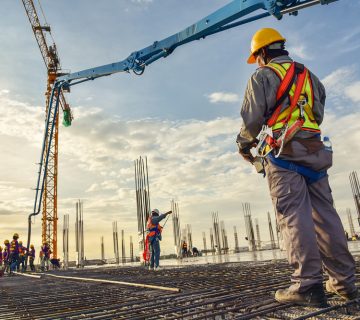In the complex world of construction, disputes are often inevitable. Whether they stem from design flaws, delays, payment disagreements, or construction defects, resolving these issues can be both time-consuming and costly. Arbitration has become a preferred method for resolving construction disputes efficiently and fairly.
What Is Arbitration in Construction Disputes?
Arbitration is an alternative dispute resolution (ADR) method where the conflicting parties present their case to a neutral third-party arbitrator or a panel of arbitrators. Unlike traditional litigation, arbitration is typically faster and less formal, yet legally binding. It offers a structured process where evidence and arguments are reviewed, and the arbitrator delivers a decision, known as an “award,” which both parties are obligated to follow.
Arbitration clauses are often included in construction contracts to outline the process in the event of a dispute. These clauses specify whether arbitration is mandatory, how arbitrators will be selected, and where the arbitration will take place.
Key Benefits of Arbitration in Construction Disputes
- Speed and Efficiency
Arbitration proceedings are generally faster than court trials. Construction projects often involve tight deadlines, and arbitration allows disputes to be resolved promptly, minimizing delays and keeping projects on track. - Cost-Effective
While arbitration does have costs, such as arbitrator fees and administrative expenses, it is typically more cost-effective than prolonged litigation. The expedited process reduces legal fees and other associated costs. - Expert Decision-Making
Arbitrators with expertise in construction law or the technical aspects of construction can be selected. Their specialized knowledge enables them to understand complex issues, making arbitration particularly suitable for construction disputes. - Privacy and Confidentiality
Arbitration is a private process, unlike court proceedings, which are public. This confidentiality is especially valuable for high-profile projects or firms seeking to protect sensitive business information. - Flexibility
Arbitration proceedings are more flexible than traditional litigation. The parties have more control over the scheduling, procedures, and even the selection of arbitrators. - Finality of Decisions
Arbitration awards are final and binding, leaving little room for prolonged appeals. This ensures disputes are resolved conclusively.
How Arbitration Resolves Common Construction Disputes
Arbitration can address a wide range of disputes in the construction industry, including:
- Payment Disputes
Payment conflicts are among the most common construction issues. Arbitration allows both parties to present evidence of completed work and payment obligations, resulting in a binding resolution. - Delay Claims
When construction projects are delayed, arbitration can help determine responsibility and appropriate compensation for lost time and resources. - Construction Defects
Disputes over defects, whether they involve design flaws or poor workmanship, are effectively resolved through arbitration. The arbitrator’s expertise ensures technical issues are evaluated thoroughly. - Contract Breaches
Arbitration can resolve disputes involving breaches of contract, ensuring fair compensation for damages or enforcing specific performance. - Scope of Work Disputes
When disagreements arise over the scope of work or project specifications, arbitration provides a neutral forum to clarify terms and resolve conflicts.
The Arbitration Process for Construction Disputes
The typical arbitration process includes the following steps:
- Initiation
One party files a request for arbitration, outlining the dispute and desired resolution. - Selection of Arbitrators
Both parties agree on one or more arbitrators with relevant expertise. - Pre-Arbitration Conference
A preliminary meeting sets the schedule, rules, and procedures for the arbitration. - Presentation of Evidence
Both parties present their arguments, evidence, and witnesses. This phase is similar to a court trial but less formal. - Deliberation and Decision
The arbitrator evaluates the evidence and delivers a binding award. - Enforcement of the Award
The arbitration award is enforceable in court, ensuring compliance by both parties.
How We Can Help
At Stryker Slev Law Group, we specialize in handling high-stakes construction disputes with a smart, strategic approach. Our team of seasoned attorneys has extensive experience navigating arbitration proceedings, ensuring that your interests are protected every step of the way. Whether you are a contractor, developer, or architect, we provide tailored legal counsel to achieve the best possible outcome.
Let us help you resolve your construction disputes efficiently and effectively through arbitration. Contact Stryker Slev Law Group today to schedule a consultation and learn how our expertise can work for you.



